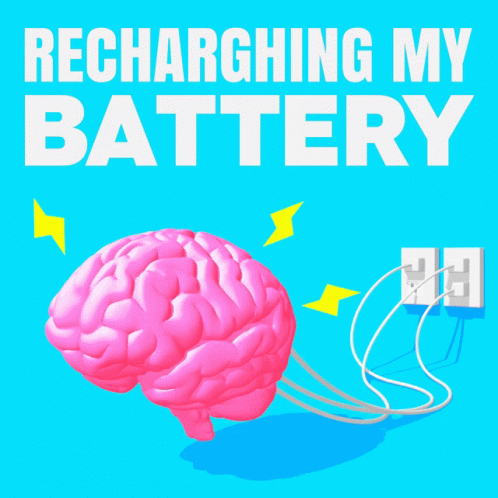



Hey everyone! Have you ever heard of highly sensitive people? Today’s quiz is about just that. If you are interested, we cordially invite you to take our quiz! Answer twenty questions and find out if you are highly sensitive!
Do you experience sadness and anxiety? Are you depressed? Try our quiz: Do I Have Depression? | This Quiz Analyzes 20 Factors To Answer . Answer twenty questions to find out if you suffer from depression.

Physical, social, and emotional cues are processed more deeply cognitively when someone has sensory processing sensitivity (SPS), which is also characterized by “intensified central nervous system sensibility.” The feature is “characterized by a tendency to ‘stop to check’ in novel settings, heightened sensitivity to relatively insignificant inputs, and the increased activity of deeper cognitive processing methods for using coping operations, all of which is driven by strong emotional reactions, both positive and negative,” according to the definition.
Would you like to take a similar quiz about sensitivity? Try our Am I Sensitive? quiz and answer twenty questions to find out if you really are sensitive!
A person is said to have “hypersensitivity,” or to be extremely sensitive, if their SPS is particularly high (HSP). In the middle of the 1990s, Elaine Aron, a psychologist, and her husband Arthur Aron developed the Highly Sensitive Person Scale (HSPS), a tool for evaluating SPS. Other scholars have used a variety of other words to describe this receptivity to stimuli in humans and other creatures.
Arons and colleagues estimate that between 15% and 20% of people have high SPS. High SPS has been consistently linked by some researchers to negative outcomes, but it has also been linked by other researchers to increased responsiveness to both positive and negative influences. Aron and colleagues claim that the high-SPS personality characteristic is not a disease.
Do you like personality tests? If that’s the case try our Personality Test INFJ | Test With 99% Accuracy and check if you have the rarest personality type! Answer twenty questions to find out if you are an INFJ!
Elaine and Arthur Aron officially recognized sensory processing sensitivity (SPS) as the distinguishing characteristic of those with high sensitivity in 1997. (HSPs). Popular synonyms for the scientific notion of SPS include hypersensitivity and very sensitive. Sensory processing, as contrasted to the sensory organs themselves, is described by Aron and Aron (1997) as the process by which perceptual information is transferred to or interpreted in the brain. They contend that the feature is a natural survival strategy with benefits and drawbacks rather than a pathology.
Elaine Aron’s research has focused on separating high SPS from disorders and socially reticent behavior that high SPS can be mistaken for, overcoming the social rejection that can lead to low self-esteem, and highlighting the benefits of high SPS to counterbalance the disadvantages that others have highlighted.
If you like personality tests check this one: What Type Of Person Am I? | Quick & Free Personality Test. Answer twenty questions and find out what kind of person you are!
HSPs were “having a moment” in 2015, according to writer Elizabeth Bernstein, who noted that several research papers have been undertaken on subjects relating to HSPs’ high sensitivity. The Highly Sensitive Person had sold over a million copies by the year 2015.
Before the Arons coined the term “high sensitivity,” Wolfgang Klages conducted experiments in which he said that the phenomena of sensitive and highly sensitive persons are “biologically rooted” and that the “stimulus threshold of the thalamus” is significantly lower in these individuals. As a result, incoming impulses from afferent nerve fibers have increased permeability, allowing them to travel “unfiltered” to the cerebral cortex, according to Klages.

The Arons agreed that Mehrabian’s theory of filtering out the “irrelevant” was sound, but they pointed out that since HSPs are unable to accomplish this, what is relevant is determined from the viewpoint of non-HSPs. High SPS is a temperamental or personality attribute that is present in some people and signifies greater cognitive processing of physical, social, and emotional inputs as well as increased central nervous system sensitivity.
Are you empathetic? Try our Empath Test | Free & Honest Test | 100% Accuracy! Answer twenty questions to find out if you are an emapth!
People with high SPS claim to respond more intensely to stimuli including pain, coffee, hunger, and loud sounds. These persons are “believed to be readily overstimulated by external stimuli because to a lower perceptual threshold and cognitively deeper processing of stimuli than most other people,” according to Boterberg et al. This more thorough processing may lengthen reaction times as more time is spent interpreting environmental cues, but it may also encourage caution and low risk-taking.
Read more about hypersensitivity here.
Are you highly sensitive? If you are still not convinced, we invite you to take the quiz! Click the start button, answer twenty questions and see for yourself now!